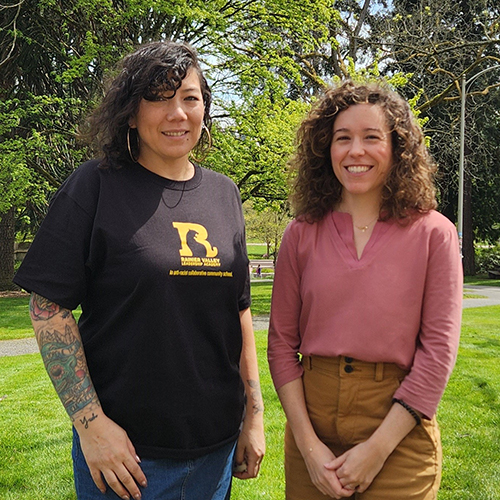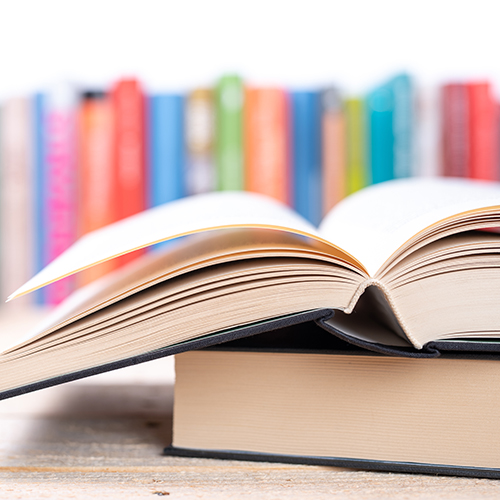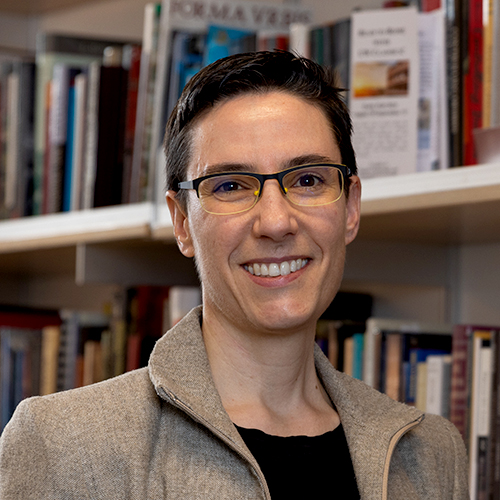As a graduate student studying linguistics, Zev Handel spent many an hour with the American Heritage Dictionary, researching the etymology, or origin, of Indo-European words in the English language. So when American Heritage’s editors asked Handel to serve as an etymology consultant for the dictionary’s fifth edition, he jumped at the chance.
“I was excited because I already had a very positive feeling about this particular dictionary and the etymologies in it,” recalls Handel, associate professor of Asian languages and literature.
Handel was tasked with improving the etymologies of words with Chinese origins, many of them having entered the English language through Japanese. “Most of the words already had etymologies, but the information was extremely thin, especially compared to European etymologies,” says Handel. “It’s only in the last few decades that we have sufficiently improved our knowledge of the history of those languages to do something like this.”

Tracing a word’s origins and its entrance into the English language involves detective work. Words adopted from one language are often altered in another; sometimes there can be multiple borrowings and adaptations over the course of thousands of years.
“Quite a few words that came to English from Japanese were originally borrowed from Chinese about 1,200 years ago,” explains Handel. “Previously the dictionary might identify a word as Japanese from Mandarin Chinese and provide the modern Mandarin word, but what’s needed instead is the ancient Chinese word, otherwise the etymology doesn’t make historical sense. It was my job to check those historical pathways and provide the ancient Chinese pronunciations.”
Just as many English words have ties to Latin, even more words in Japanese, Korean, and Vietnamese have ties to ancient Chinese. The reason, says Handel, has to do with the spread of literacy in Asia. “Classical Chinese was the literary language in all of East Asia in the first millennium,” he says. “So if you were literate in Japan, Vietnam, or Korea, you were reading and writing in Classical Chinese.”
Literacy in Japan began around the sixth century with a handful of scribes in court who knew Chinese. It grew as Buddhism and Confucianism became important, with Chinese texts imported into Japan, leading to the systemization of pronunciation. Over time, Chinese roots were combined to create new Japanese words as well. “One of my challenges was to figure out if a word existed in ancient Chinese, or if the Japanese took two Chinese roots to create a new word.”
The adoption of Asian words by English speakers often came through trade, with food names—like tofu, daikon, dim sum, and bok choy—topping the list. Spiritual terms and martial arts terms also entered common usage in the second half of the 20th century. A few words, like typhoon and tycoon, came to English through Europeans who spent time in Japan or China, often through the military.
The Romanized spelling of Chinese words often hints at the time of their introduction to the English language. Words adopted in the 19th century, like “gung ho” and “ketchup”, were spelled to be comfortable for English speakers. Words borrowed more recently adhere to the official Romanized spelling of the original language. “There’s a real difference in visual feel between older borrowings and newer ones,” says Handel.
To demonstrate the complex nature of word origins, Handel offers a short history of currency words in East Asia. First, he says, the Japanese borrowed the middle Chinese root for “round” to name its currency yen, playing off the round shape of the coin. Later, Chinese and Koreans borrowed that Japanese word to name their own currency (yuan and won respectively), altering the pronunciation to fit their language. The three currencies then entered the English language as different words because of the unique pronunciations. “There are some very complicated back and forth borrowings that can be disguised because of different pronunciations,” says Handel.
To avoid overwhelming readers and to stay on schedule, the dictionary’s editors asked Handel to trace words no farther back than the 5th century, with an emphasis on brevity and clarity. “I’d like to have taken the etymologies back even farther,” Handel admits. “Maybe that will happen in the future.“
Yet Handel is proud of what he accomplished in the dictionary’s new edition. “There’s a real sense of satisfaction, knowing that we can do the same kind of etymological work on the Asian side that they do on the European side,” he says. “We will ultimately be able go back as far and be as detailed. We’re not quite there yet, but we’re getting closer.”
More Stories

Learning Through Storytelling
Through a UW-led storytelling workshop and course, English language learners in the Seattle area strengthened their language skills and built community.

Exploring Connections Through Global Literary Studies
The UW's new Global Literary Studies major encourages students to explore literary traditions from around the globe and all eras of human history.

Lifting Marginalized Voices — from Ancient Rome
"Interesting, frustrating, and necessary,” is how Sarah Levin-Richardson, professor of Classics, describes her research into the lives of enslaved individuals in the ancient world.